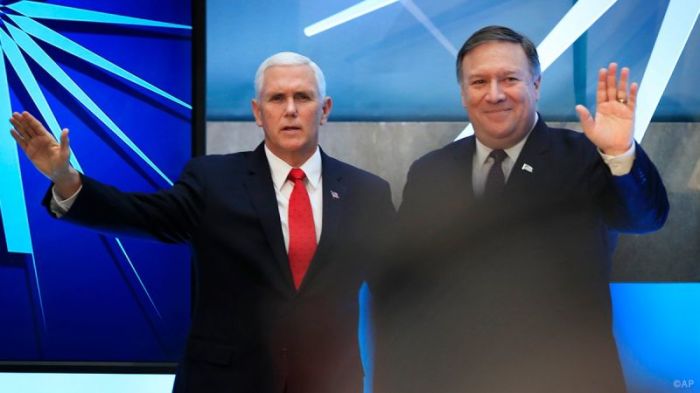Why Trump's Religious Freedom Task Force Is So Important

After the first-ever Ministerial to Advance Religious Freedom, the administration has now announced a Religious Freedom Task Force. Here's why that's important.
At the end of July, the State Department hosted a long-overdue "Ministerial to Advance Religious Freedom," and brought together 350 government officials and activists from 80 countries.
It was a remarkable three-day gathering, one that Christians and all people of faith should affirm. But actions, not words, will determine whether this event makes a lasting difference in the lives of the persecuted.
In his remarks at the Ministerial, Vice-President Mike Pence said "America will always stand for religious freedom, and we will always speak out boldly wherever and whenever it's threatened."
He then announced the creation of an "International Religious Freedom Fund" to support those "who fight for religious freedom and suffer from religious persecution."
The Ministerial also produced a statement of principles, "The Potomac Declaration." The statement asserts that "freedom to seek the divine and act accordingly . . . is at the heart of the human experience."
"Given the contribution," the statement continues, "of individual and communal religious belief and expression" to the "flourishing of societies throughout human history," religious freedom "is a far-reaching, universal, and profound human right that all peoples and nations of goodwill must defend around the globe."
These are powerful words, and 100-percent spot on.
But given what happened shortly after the Ministerial, I wonder if any of the progressive media was listening.
Attorney General Jeff Sessions announced last week the formation of a new task force on religious liberty. And as proof that people of faith need their constitutional rights protected here at home, Sessions cited the previous administration's onerous HHS Mandate, which forced Catholic nuns, of all people, to insure contraceptives, and also the recent grilling of a Catholic judicial at the hands of Senatorial inquisitors.
The reaction from the left leaning media was, as David French put it, "predictably melodramatic, and the unfounded, vitriolic attacks against this task force—and on the fundamental value of religious liberty—are excellent evidence of how necessary it is" to have such a task force.
The common refrain was that the Trump administration's efforts to protect religious freedom was simply a smokescreen to protect bigotry—especially against LGBT, etc. One commenter claimed the task force was proof that the Trump "regime" wants to create "a regressive white Christian ethnostate."
Good heavens. Look, the video from the ministerial is public, and the Potomac Declaration and the accompanying document, the Potomac Plan of Action, were focused on the religious rights of conscience of all people, not just Christians.
The task force is a response to these documents. The administration recognizes that if we cannot defend the fundamental right to freedom of religion here at home, there is no way to defend it abroad.
And make no mistake, defending it abroad is a daunting task, one that requires changes in the way we relate to the rest of the world. China, for instance, has been persecuting Christians since the Communist takeover in 1949. It has never paid a tangible price for doing so. The same is true of Saudi Arabia, Pakistan, India, and many other countries with whom we have strong diplomatic and trading relations. Their repression of religious minorities has been cost-free.
And, of course, I've mentioned on the air that the U.S. itself has been painfully slow in granting asylum to the victims of religious persecution—especially Christians. This needs to change.
Now, today on the BreakPoint podcast we have for you former Congressman Frank Wolf's speech from the Ministerial to Advance Religious Freedom. He's been a courageous defender of religious freedom for decades—and his plea to protect the victims of religious persecution is stirring and stunning. You have to hear it. Please come to BreakPoint.org and click on the BreakPoint podcast.
Originally posted at Breakpoint.




























